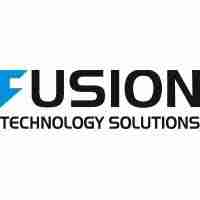Pharmacovigilance Careers: Opportunities and Growth in Drug Safety
In the dynamic and ever-evolving field of healthcare, pharmacovigilance plays a vital role in ensuring the safety and efficacy of medicines. As new drugs enter the market and existing ones are used by millions, the need for vigilant monitoring and assessment of their effects has never been greater. Enrolling in pharmacovigilance courses can be the foremost step towards an impactful profession for those interested in pursuing a career in this vital domain. Whether you are considering a pharmacovigilance training program to kick-start your career or seeking to enhance your existing skills, the opportunities for growth and advancement are vast.
Fusion Technology Solutions, a premier pharmacovigilance training institute in Pune, offers comprehensive courses to equip students with the knowledge and practical skills required in this field. Focusing on real-world applications and industry standards, these Pharmacovigilance courses in Pune will prepare individuals to contribute effectively to drug safety and pharmacovigilance activities within pharmaceutical companies, regulatory authorities, and healthcare organizations.
Understanding Pharmacovigilance and Its Importance
Pharmacovigilance, also known as drug safety, focuses on identifying, assessing, understanding, and preventing adverse effects and other drug-related issues. It aims to ensure the safe and effective use of medications to protect public health. This field involves gathering and analyzing data on adverse drug reactions (ADRs), managing risks, and sharing information with healthcare professionals and patients.
Given the complexity of modern pharmaceuticals and the global nature of the healthcare industry, the demand for skilled pharmacovigilance professionals is on the rise. These professionals play a critical role in monitoring the safety of medicines throughout their lifecycle, from pre-clinical development to post-marketing surveillance. As regulatory requirements become more stringent and the emphasis on patient safety grows, the expertise of pharmacovigilance specialists is becoming increasingly valuable.
Career Opportunities in Pharmacovigilance
A career in pharmacovigilance offers a wide range of opportunities for growth and specialization. Here are some of the critical roles and pathways available in this field:
Drug Safety Associate (DSA): As a Drug Safety Associate, you will be responsible for the initial processing and assessment of adverse event reports. This entry-level position involves data entry, case management, and compliance with regulatory timelines. DSAs are crucial in the pharmacovigilance system by providing accurate and timely information on drug safety issues.
Pharmacovigilance Scientist: Scientists analyze and evaluate adverse event data to identify potential safety signals. They work closely with medical reviewers and regulatory authorities to ensure the ongoing safety of marketed drugs. This role needs strong analytical skills, attention to detail, and the ability to interpret complex data.
Risk Management Specialist: Risk Management Specialists develop and implement risk management plans (RMPs) to minimize the risks associated with drug use. They conduct benefit-risk assessments and design strategies to mitigate potential safety concerns. This role involves collaboration with cross-functional teams, including clinical development, regulatory, and medical affairs.
Signal Detection Specialist: Signal Detection Specialists focus on identifying new safety signals from various data sources, including clinical trials, post-marketing surveillance, and scientific literature. They use advanced statistical methods and data mining techniques to detect potential safety issues early and ensure timely intervention.
Regulatory Affairs Specialist: Regulatory Affairs Specialists ensure that pharmacovigilance activities comply with regulatory requirements and guidelines. They prepare and submit safety reports to regulatory agencies, monitor regulation changes, and provide strategic guidance on regulatory compliance. This role requires a thorough understanding of global regulatory frameworks and excellent communication skills.
Medical Reviewer: Medical Reviewers assess adverse event reports from a clinical perspective, providing medical insights into drugs' safety profiles. They evaluate the causality and severity of adverse reactions and contribute to the preparation of periodic safety update reports (PSURs) and other regulatory submissions.
https://www.fusiontechnologyso....lutions.in/pharmacov
